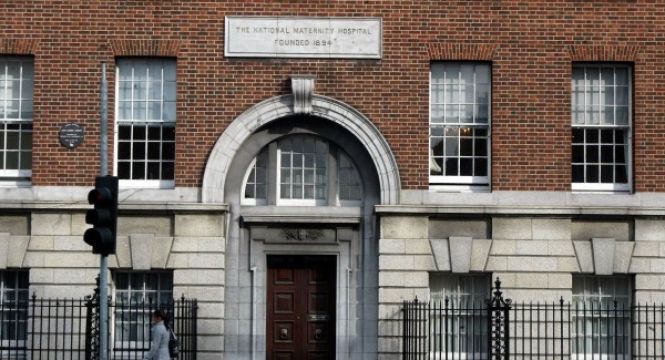A five-year-old girl with cerebral palsy who sued over the circumstances of her birth at the National Maternity Hospital has settled her High Court action for €3 million.
Alex Donnelly Byrne has severe spastic quadriplegia and dyskinetic cerebral palsy. The High Court heard the young girl cannot speak and communicates through eye gaze technology.
Alex’s counsel Bruce Antoniotti SC, instructed by Jamie Hart, solicitor of Augustus Cullen Law, told the court that Alex's parents were locked down in their Dublin home because of the pandemic and so their daughter did not pick up an infection. He said they were joining the court by video link.
Counsel said it was a very difficult case and the settlement figure had been reached after a “very difficult mediation".
Alex, he said, is aware of her surroundings but has impaired vision and also needs to be PEG fed. Counsel said she is severely disabled and will need care and assistance for the rest of her life.
He said her parents Anne Donnelly and James Byrne have been very careful with Alex during the pandemic.
Birth circumstances
Alex Donnelly Byrne of Dodder Dale, Rathfarnham, Dublin had through her mother Anne Donnelly sued the National Maternity Hospital, Holles Street, Dublin over the circumstances of her birth on January 13th, 2016.
Alex’s mother had gone into hospital on the night of January 12th, with a history of having experienced a lack of foetal movement that day and increased foetal movements on the previous day. Ms Donnelly was admitted to the hospital and a CTG recording, monitoring the baby’s heartbeat, was commenced.
Ms Donnelly was transferred to a delivery suite and it was claimed the CTG continued to be pathological.
Alex was delivered just before 2am by caesarean section and was in a very poor condition, needing to be resuscitated.
It was claimed the immediate delivery of the baby at the time of the mother’s arrival at the hospital would allegedly have resulted in a shorter delay and an alleged higher probability that the long-term neuro development disability would have been significantly less severe.
Alleged failures

It was claimed there was an alleged failure to heed and observe a troubling CTG and an alleged failure to heed and act upon the presenting symptoms which Alex’s mother outlined upon arrival at the hospital, including excessive movements on the day before arriving at the hospital followed by absent movement the next day.
The claims were denied but the hospital did admit a breach of duty in respect of a 23-minute delay in the delivery of baby Alex. However, it was not admitted that the delay caused or contributed to the injuries alleged.
Ms Donnelly and Mr Byrne told the court they were relieved the legal process was coming to an end and they can now focus on caring for their daughter.
Approving the settlement, Mr Justice Paul Coffey said it was a very sad and tragic case and the legal team had done extraordinary well in the circumstances. The judge conveyed his very best wishes to Alex and her family.







